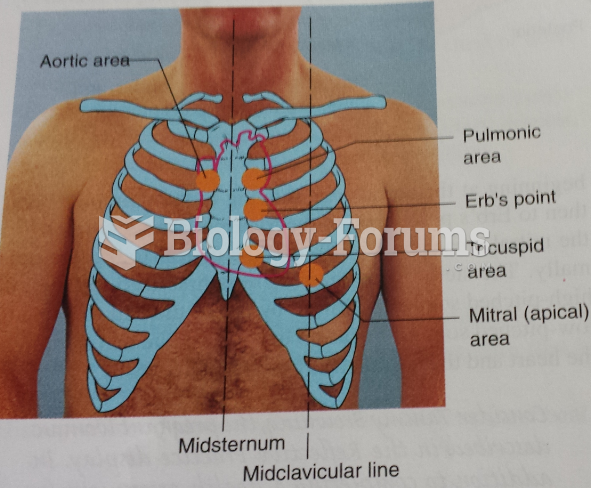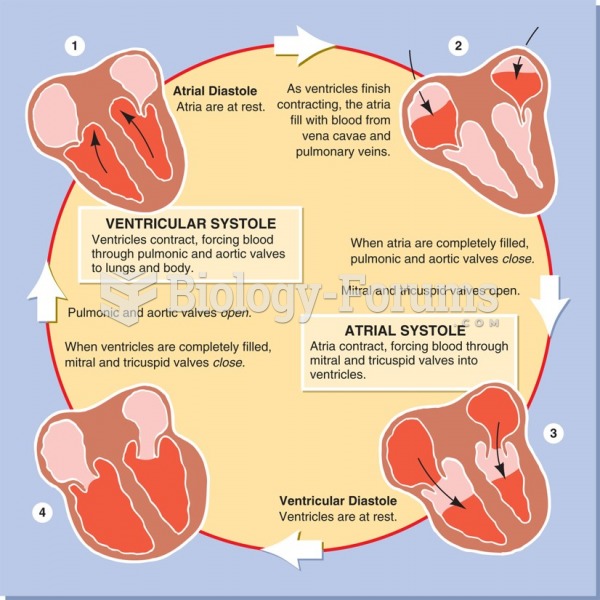|
|
|
Illicit drug use costs the United States approximately $181 billion every year.
Anesthesia awareness is a potentially disturbing adverse effect wherein patients who have been paralyzed with muscle relaxants may awaken. They may be aware of their surroundings but unable to communicate or move. Neurologic monitoring equipment that helps to more closely check the patient's anesthesia stages is now available to avoid the occurrence of anesthesia awareness.
If you could remove all of your skin, it would weigh up to 5 pounds.
Pregnant women usually experience a heightened sense of smell beginning late in the first trimester. Some experts call this the body's way of protecting a pregnant woman from foods that are unsafe for the fetus.
Drying your hands with a paper towel will reduce the bacterial count on your hands by 45–60%.







